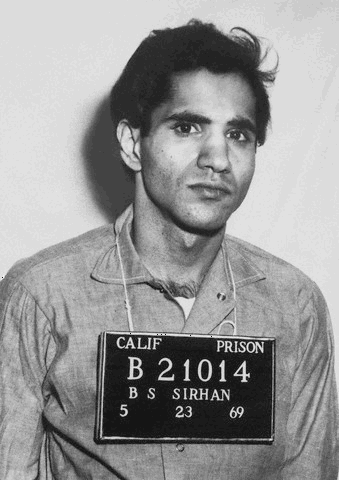
California Department of Corrections and Rehabilitation (Photo: cdcr.ca.gov)
Residents and Leaders In Cities Affected By CDCR Prison Closures Speak Out
Citizens express fear over job loss, rise in crime stemming from prison closures
By Evan Symon, December 8, 2022 2:27 am
City leaders and residents of the seven cities and towns affected by the Tuesday announcement of the closure and partial closure of seven state prisons across the state expressed uneasiness and fear of the future on Wednesday, as the prisons served as economic and employment anchors for decades.
Specifically, the California Department of Corrections and Rehabilitation (CDCR) gave the the Chuckawalla Valley State Prison (CVSP) in Blythe a shutdown date of March 2025, with the CDCR also ending a $32 million annual lease of the California City Correctional Facility with CoreCivic, ending the use of that prison in March 2024. Areas of other prisons slated for closure include the Folsom Women’s Facility, Facility C in Pelican Bay State Prison, West Facility in California Men’s Colony, Facility A in California Rehabilitation Center, Facility D in California Institution for Men, and Facility D in California Correctional Institution.
In Blythe, located in Riverside County, many expressed fear and disappointment with the state, noting that the closure will severely hurt the town of 18,000 on the California-Arizona border.
“751 people work at the prison,” Blythe resident Paul Watson, whose business relies partially on those who work at the prison, told the Globe. “Minus all the kids and those not of working age, that’s roughly one out of every 15 people. That’s not good at all. That just kills us. We still have Ironwood Prison here thank God, but if Chuckwalla is going, you know, a lot of people are worried about that one now too. It is just hurting us. For a long time we were the gas station for people going between LA and Phoenix. And now, we are slowly becoming that again thanks to this.”
In Tehachapi, in Kern County, similar sentiment arose with the partial closure of the California Correctional Institution there. City Manager Greg Garrett noted on Wednesday that the city is now facing less money coming in with the closure, and with more inmates getting an early release, increased public safety concerns.
“If the prison population is reduced, then the City of Tehachapi’s allocation is reduced, so we expected to received several hundreds of dollars less than we have in previous years,” said Garrett. “It is an integral part of Tehachapi, and it is a needed part, unfortunately, of our society.”
Groups supportive of closing prisons in favor of community investment, such as Californians United for a Responsible Budget (CURB) ignored the human factors of the closures, instead focusing on the criminal justice aspects.
“It’s important that California continue this progress and adopt a well-considered roadmap for future prison closures, one that centers community investment and is informed by the experiences of people most harmed by incarceration,” said CURB Prison Spending Executive Director Amber-Rose Howard on Wednesday.
However, those sentiments were not received well by residents in affected cities.
“Those groups have no idea what they are talking about,” explained Steve Dryer, a Riverside County resident whose business is tied closely to a prison facing closure. “We are upset about the hundreds of people losing their jobs at each prison. CURB and these other groups obviously have no sympathy for all of these people being put out of work. But with California having high crime all over, slashing prisons now is such a bone-headed move.”
“I mean, ‘most harmed by incarceration?’ These people committed crimes and deserve to be locked away as punishment. If they can’t do the time, don’t do the crime. It’s good to give people a fair shot and second chances, but not when it means that people aren’t rehabilitated. Not when it means that crime will go up as a result. CURB and other groups like it should feel ashamed. They’re wrecking California and they don’t care who they take down with them all in the name of ‘criminal justice.'”
As of Wednesday evening, no lawsuits to stop the prison closures in Blythe and California City have been announced.
- Bill to Require Law Enforcement Disclosure if AI Was Used To Help Write Reports - August 7, 2025
- Gov. Newsom Files FOIA Request To ‘Expose True Cost’ Of L.A. Federal Troop Deployment for Anti-ICE Riots - August 6, 2025
- California Redistricting: How Newsom’s Plan Will Demolish Hard Fought GOP Gains - August 6, 2025





Who elected Amber Rose?
How did she become the voice of prison closures?
She is a victim because of her background, that qualifies her to care for “those most harmed by incarceration”!
She has obviously never talked with a REAL victim of crime!
Community organizer and activist with a bright future in the California Democratic Cartel.
Google her bio!
This all makes sense, when I look at this:
“And because lawlessness will abound, the love of many will grow cold.”
Matthew 24:12
For the mystery of lawlessness is already at work; only he who now restrains will do so until he is taken out of the way.
2 Thessalonians 2:7
Thanks for this, Orwellianism.
It is indeed what we are increasingly seeing all around us, isn’t it.
While the prison closures in Blythe and California City will adversly affect businesses and home values, the two cities might be better off in the long term without the criminal elements that the prison industry often attracts?
Loss of prison workers jobs is an extremely poor reason to not close prisons.. Unfortunately it is not because of less crime and those who should be locked up.. So many are being harmed by failure to incarcerate criminals. Walmart and Target should spearhead a new proposition to counteract what was previously passed allowing such a high dollar amount of theft before prosecution. California also Needs to get rid of gun control laws so the law abiding can protect themselves.
In 2011 the Supreme Court ruled that overcrowding in California’s prisons results in “cruel and unusual punishment,” and affirmed that California had to reduce the state’s prison overcrowding by approximately 32,000 prisoners within two years. The state refused to build more prisons and began the process of releasing prisoners. The legislature was all in and began passing law after law that freed felons and made it much more difficult to incarcerate criminals. Now that the process is in place, the tail is wagging the dog. Even though the state has insufficient jails, it is closing more jails to pay for the huge amounts of social services that are now needed in crime and drug-riddled communities. I think that this is a wealth/ graft transfer from prison workers to county and city social workers. Democratic party political power is now wielded by women with ethnic studies and social science degrees who do not want to work in the prisons but do not mind using computers and occasionally chatting with street zombies about the availability of free needles.
Agree with you, John Thomas.